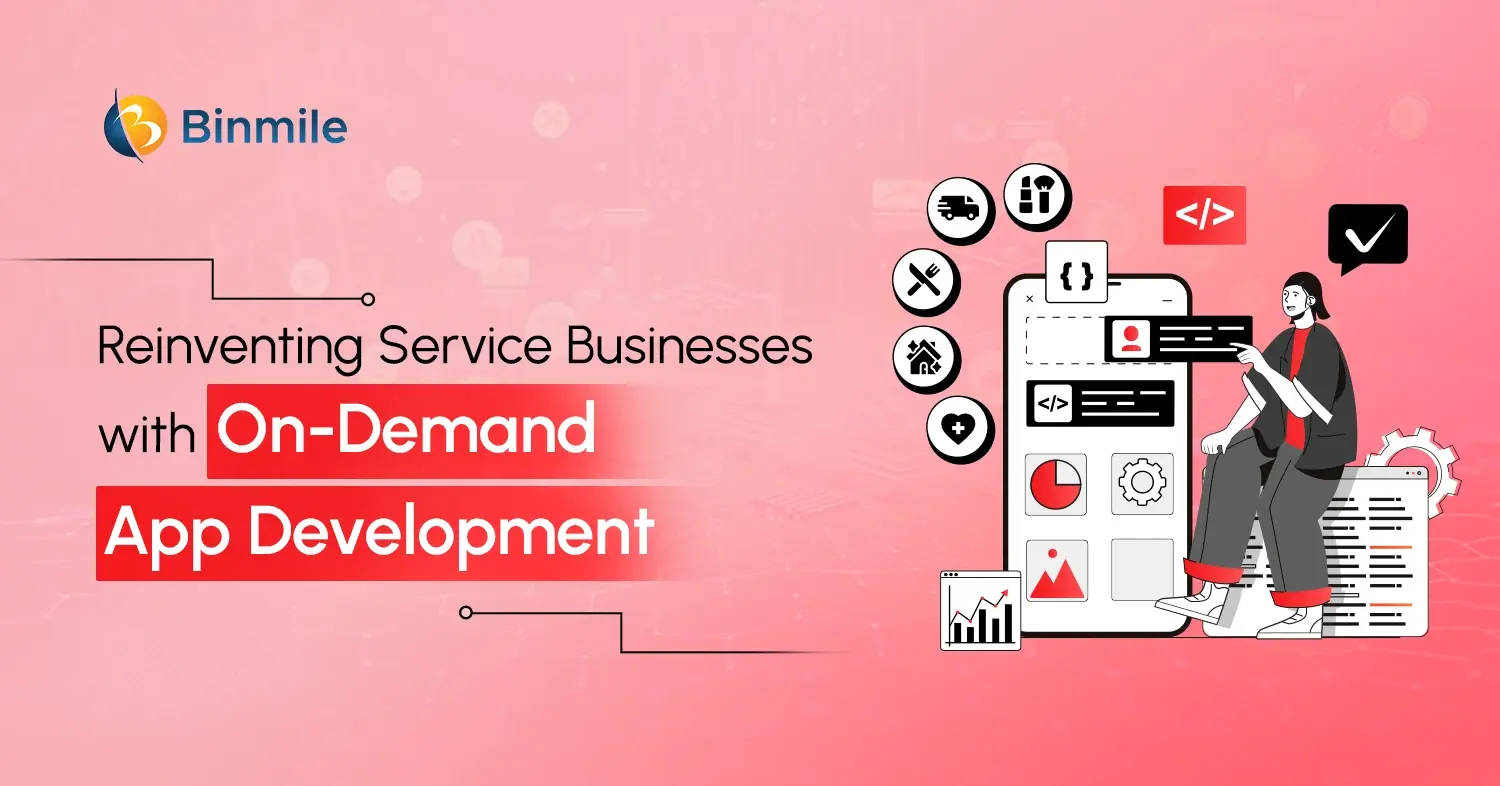The insurance industry is expanding as the days are going by. In fact, a top data and business intelligence platform claims that the insurance market globally will scale by about 10 percent from 2021 to 2022, touching almost the 6 trillion US dollar mark. Further, they forecasted that the industry will enlarge at a CAGR of around 9% per year, hitting almost the 8.4 trillion U.S. dollar mark in 2026.
This is why it is extremely important to understand the importance of investing in the insurance sector, especially digital technologies, and take a solid plunge that will transform your whole business. Trends of insurance app development are not too old and they are here to stay in 2024 and beyond. Let’s learn some insurance app development trends today, integrating whom into your application will expedite processes, enhance customers’ experiences, and strengthen your brand value and proposition. But before that, let’s take a look at:
Why Should You Develop a Mobile App for Your Insurance Company?
Advanced mobile technologies have enabled business owners to explore newer methods of running a business in all industries. According to a top software development companies, the insurance business is one such rewarding business that can be leveraged using customized mobile apps.
Here are some pointers that you must factor in:
- Mobile apps are the easiest and simplest way to connect with insurers and boost user engagement.
- A mobile app is one of the most efficient solutions to cater to insurance enthusiasts. It is a modern yet proven technology that has the ability to gather considerable data for insurance, drive down operational costs, share comprehensive client insights, and do much more.
- The convenient features of insurance app development automations not only augment customer satisfaction but also offer plenty of free time to the insurance agents to concentrate on business expansion and other important tasks.
- Insurance tech integration renders the best B2C interaction with not just existing customers but potential ones, too. Several top mobile app development companies provide top-tier applications to make sure that insurance firms take maximum advantage of the benefits and opportunities from both sides.
With the rise in the adoption of newer trends of insurance app development, the fashion of self-service is also gaining ground, especially for policyholders. In fact, as per a leading Customer Experience AI platform, 81% of customers want to use self-service options, and that applies to insurance policyholders too.
Popular Trends of Insurance App Development

The insurance industry is undergoing a digital transformation, driven by technological advancements and evolving consumer expectations. The good news is that insurance app development is at the forefront of this digital transformation in the insurance industry, with multiple trends playing a key role in shaping its progress, such as:
1. AI and Machine Learning Integration
- Personalized Underwriting: AI algorithms analyze massive data sets to evaluate risk factors more precisely, leading to customized insurance policies designed for an individual’s profile.
- Claims Processing: Machine Learning accelerates claims processing by automating routine jobs, minimizing fraud, and ensuring quicker payouts.
2. Mobile-First Approach
- User-Centric Design: Insurance software development services focus on user experience with intuitive interfaces, effortless policy management, and trouble-free claims reporting.
- Mobile Payment Trends: Incorporation with mobile payment platforms facilitates the process of premium payments and policy renewals.
3. IoT-Enabled Insurance
- Connected Devices: One of the best things about these trends of insurance app development is that they allow insurers to garner real-time data from interconnected devices, like telematics in insurance for motor vehicles and smart home systems, to gauge risks precisely.
- Usage-Based Insurance: Insurance apps make the most of IoT data to render usage-based policies, where premiums depend on actual behavior, fostering safer practices.
4. Insurtech Collaboration
- Collaboration with Insurtech Startups: Traditional insurers partner with small insurtech firms to reap the benefits of innovative solutions, improving their digital offerings.
- Expedited Innovation: Such partnerships speed up the development of state-of-the-art insurance applications and services, according to a mobile app development services provider.
5. Data Analytics for Risk Assessment
- Predictive Analytics: Advanced analytics models forecast potential risks and enable insurers to take proactive measures to keep losses at bay.
- Fraud Detection: Data analytics tools detect fraudulent claims patterns, which helps in minimizing financial losses.
This is why adopting these trends of insurance app development makes sense for your insurance business.
6. Customer Self-Service
- Digital Onboarding: Another advantage of investing in a tech-driven insurance app is that it facilitates onboarding, allowing consumers to sign up, choose policies, and receive immediate coverage.
- Chatbots and Digital Assistants: AI-powered chatbots offer 24*7 customer support, responding to users’ queries and guiding them through the entire insurance process.
7. Regulatory Compliance
One lesser-known trend of insurance app development is that newer apps integrate regulatory compliance checks into their processes, ensuring adherence to stringent insurance regulations.
Keep in mind that the creation of insurance applications is not just focused on policy management. It prioritizes enhancing customer experience, increasing operational efficiency, and reducing risks. To stay competitive in this ever-evolving industry, it is important to adopt the aforementioned trends of insurance app development with full dedication. This way, you will be able to develop and deliver innovative solutions that not only live up to customer expectations but also add significant value to the insurance industry.
How Much Does it Cost for Insurance App Development?
Generally, the complexity of an app is directly related to its development cost. Here is a rough estimate of insurance app development cost and timeframe based on varying levels of complexity.
| Complexity of App | Estimated Price | Expected Time |
| Simple | $35,000 to $60,000 | 3 to 6 months |
| Slightly complex | $70,000 to $165,000 | 6 to 8 months |
| Highly complex | $170,000 to $250,000 | 9 to 12 months |
These estimates serve as a general guideline, and the actual cost may differ depending on the specific requirements and goals of your project. Therefore, it is suggested to set up a formal meeting with a reputed software development company’s team and get an accurate cost estimate created for your insurance app’s needs.
Successful Apps Featuring Latest Trends of Insurance App Development
1. Lemonade
Lemonade has transformed the insurance industry with its innovative notion. It provides tenants and homeowners with insurance services with a seamless AI-driven claims process.
- Chief Features: Instant policy issuance, quick and convenient claims processing, and a user-centric app interface
- Success Factors: Certain factors that have contributed to the success of Lemonade are the integration of Artificial Intelligence to streamline operations, its commitment to transparency, and its focus on social good.
2. Root
Root is another mobile app that has been designed keeping promising trends of insurance app development in mind. It results in transforming the auto insurance industry by rendering personalized rates based on the driver’s driving behavior. It taps telematics to monitor each driver’s driving habits and reward safer ones.
- Chief Features: Personalized insurance fees, app-based trip tracking, and a gamified experience that promotes safer driving.
- Success Factors: Root’s success is powered by its data-driven approach, transparency, and the fact of attracting the attention of safety-conscious drivers.
3. Geico
Geico is the next user of recent trends in insurance app development. The mobile app allows policy buyers to manage their policies, report claims, and most importantly, request roadside assistance.
- Chief Features: Policy management, virtual ID cards, accident reporting, and access to a considerable number of repair shops.
- Success Factors: Convenience, ease of use, and the potential to manage a wide variety of insurance-related jobs smoothly are the reasons for Geico’s app success.
On a Closing Note!
The examples of successful insurance application development that you just went through have made significant contributions to simplifying insurance processes and improving the overall experience of policy buyers. Hence, if you want to add new features to your current application or create a new one for your specific insurance business, it is advisable to hire a prominent custom software development services provider that can ensure continuous innovation and high user satisfaction.












